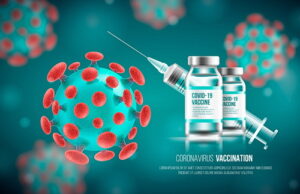
Antibodies, (AKA Immunoglobulins) are the body’s natural defenders to protect you from infections. They are produced by your immune system to continuously look for foreign entities, called antigens, such as bacteria and viruses, and other dangerous invaders. If a foreign entity is found, antibodies are the first line of defense that aid in the destruction of these unwanted entities.
How Do Antibodies Operate in Your Immune System?
In the absence of an infection, antibodies are on standby. They are kept dormant by two kinds of cells: T cells and B cells. Once a foreign invader is located, the T cells awake and open the gate for the antibodies to move out and take on the task of removing these cells that infected your body.
B cells are white blood cells that respond to foreign invaders by producing antibodies. The exact proportion of B cells and T cells depend on the cellular-level balance that’s developed in the body over the course of your lifetime. However, it’s generally accepted that the immune system does its best to make every effort to help eliminate these foreigners from your system.
So the B cells keep the existing antibodies in check and the T cells are ready to produce more of them should an invader penetrate your body.
How You Can Help Antibodies Fight Infections

One of the best recommendations to boost your immunity are to keep up a healthy diet.
Some antibiotics will kill germs, but in most cases, you can outsmart the invading bacteria by not giving them a chance in the first place. Stay up to date on the best foods to eat that help you maintain a good amount of antibodies, not to mention help fight off free radicals as well!
What Is an Immune Deficiency?

An immune deficiency is when your body is not producing enough antibodies or simply no longer has the ability to make them.
In extreme cases, these deficiencies are life-threatening. It may cause inflammation of the joints, blindness, chronic fatigue, pneumonia, increased risk of infection, or skin rashes. In milder cases, it may cause a cold, sore throat, fatigue, or skin rashes, among others.
Influenza and Rotavirus infections are common causes of immune deficiency. Most cases of the common cold, where influenza viruses are contained, can also be caused by an immune deficiency.
Why the Immune System Needs Help
When someone is sick, the immune system becomes overloaded. For example, someone who has the flu or a stomach virus will start producing a very large amount of antibodies to fight the virus, but the antibodies can be tricked into thinking that healthy cells are invaders.
For example, for people who have an autoimmune disease, such as diabetes, the antibodies will think that healthy cells around the pancreas are foreign and subsequently attack them by releasing proteins called autoantibodies. Autoimmune diseases can take many forms, such as multiple sclerosis, Guillain-Barre syndrome, Lupis, and diabetes previously mentioned, as well as many more.
What Happens When You Have a Strong Immune System?
Having an adequate supply of antibodies has been proven to be very useful in combating various infections. Studies have found that people who lack antibodies are at higher risk of various diseases such as cancer, diabetes, heart disease, allergies, and other infections. It has also been found that people who have a strong immune system are more likely to live longer, have lower cholesterol, and be less likely to develop diabetes. However, it is important to note that you do not have to have antibodies to boost immunity. However, the more antibodies you have, the better off you are in fighting infection.
The human body produces antibodies to fight infection or foreign invaders. Antibodies help your body fight off bacterial or viral infections and when injected with a vaccine, it increases the production of the antibodies, enough supply to confront a possible infection and keep it at bay.
Enter the COVID-19 Vaccine

https://www.freepik.com/pikisuperstar
The COVID-19 vaccine has proven to be the ultimate killer of the coronavirus. In simple terms, it builds more antibodies in your body, in the form of T-cells that await the oncoming virus should you get infected. The result – you have enough antibody cells that will fight off the disease!
